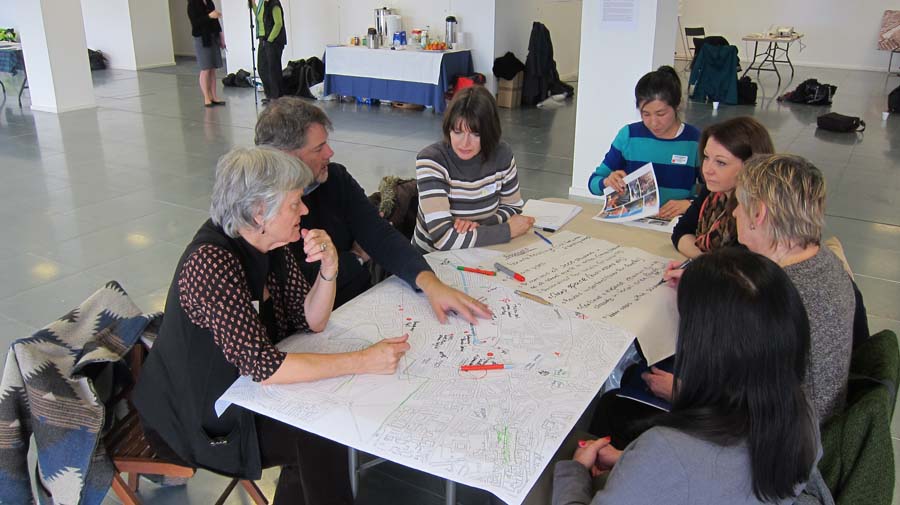Written by:
On 11 November, I gave oral evidence to the House of Lords Select Committee on National Policy for the Built Environment, on behalf of The Glass-House, which followed our written submission in September to their Call for Evidence (you can watch a recording of that day’s session on Parliamentlive.tv).
The Call for Evidence issued by the House of Lords Committee asked: how do we create a better built environment?
In responding to their call, we shared two key Glass-House arguments:
1. Community participation and leadership in the design of neighbourhoods is crucial to the success of great places.
2. Policy should facilitate and support different sectors, disciplines and communities to work collaboratively to make great places where people live, work and play.
We also drew out some more specific points for discussion and consideration:
Championing great design and high quality places
Above all, The Glass-House was keen to remind the Select Committee that we all have a responsibility to champion great design as an essential determinant of the quality of our buildings, spaces, homes and neighbourhoods. When we speak of the built environment, we must never forget its interaction with people and its impact on quality of life and life chances.
Engaging and empowering, not consulting
The session at the House of Lords had a strong focus on how to engage people with the planning system either through planned development or through communities producing their own planning policy in the shape of Neighbourhood Plans. Central to our evidence was the distinction between engaging communities in order to consult and/or seek buy-in, and a process of engagement that gives local people and organisations an active and informed role in decision-making. Engagement should be a means of empowering local people by developing local skills and opportunities, drawing together professional and local expertise, mobilising assets and resources differently.
Celebrating and learning from the spectrum of actions
It is also essential to recognise, celebrate and learn from the whole spectrum of grassroots action happening across the country. What of the many communities leading organic and incremental change to open spaces, buildings and housing areas? What can community-driven projects achieve that top-down development and regeneration cannot, and how can the two approaches be combined to help places thrive?
Policy shaped by the public
Some of our recommendations focused on how policy relating to the built environment is formed and how policy-driven programmes are evaluated. What voices inform how policies are shaped and what evidence is produced to illustrate how they affect people and places? What can we do to create new routes into dialogue and impact evaluation for a broader spectrum of voices?
Proper evaluation of the impact of policies
What do we learn from the translation of policy formed in Whitehall to the reality on the ground? We believe that government should be doing more to evaluate the social and economic impact of both policy and of the funding programmes that emerge from them. What difference do they make to people and communities? Of the hundreds of thousands of new home being built, how many are being sold to and housing those living in Britain full-time? Is the market for house buyers and renters improving in real terms? What impact has the substantial investment in housebuilding produced in economic, social and environmental terms, and how is what we know informing what we do next?
Barriers to reuse
Finally, we must consider more carefully, and policy must support, the thoughtful integration of new development and revitalising existing buildings and infrastructure. Environmental, economic and social sustainability demands it. We have seen countless communities breath new life into places that have been overlooked or abandoned by the public and private sectors. How is it though, that VAT is still being paid on refurbishment but not on new build?
A call to action
As always, The Glass-House leaves this particular conversation both making recommendations and asking questions to stimulate further discussion:
- What do we know and how should that influence what lies ahead?
- Who is informing decisions, and how can we open up that dialogue to be as open and inclusive as possible?
- How can we bring top-down and bottom-up approaches together to support a more collaborative approach to placemaking?
You can read the report produced by the House of Lords Select Committee on National Policy for the Built Environment on their website.


